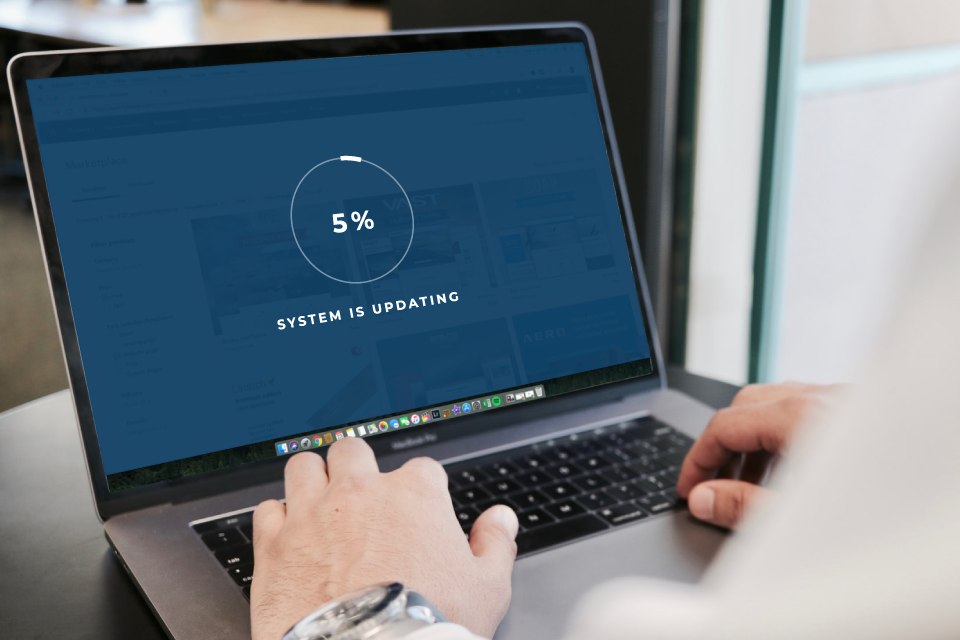Do I Really Need to Update Software ASAP?
When you use the Internet every day, whether for work or personal fun, you get into a personal routine. Just like you get up in the morning, eat breakfast, brush your teeth and dress, every time you log into your computer you may follow a pattern too. You open your browser to the tabs you last used, where Cookies keep you automatically signed in (do you even know your password anymore?) so you can add to your online shopping cart. The saved cards make one-click checkout a breeze.
You like the way your accounts look and run. When your browser needs to install updates and relaunch, you could lose your work. If the whole system needs to update, it can be time-consuming too. At the end of all that, the layout that you carefully designed for your account may no longer exist in the new update.
People can be very resistant to these better versions when they’re announced, because change is frustrating and scary. So why is it really necessary to make these changes as soon as they become available?
Security
When the provider of one of your applications or services announces that they’ve patched a vulnerability in a new update, it lets you know that you have a security risk within your system. Whenever you use that old software, you’re at risk. The vulnerability will remain a potential entryway for hackers until you fix it – namely, by installing the update with the patch.
You’re not the only one who just got that notification, though. By warning you, they also inform cybercriminals that there are weak spots that can be penetrated. Now, it’s not a problem for people who update immediately – but what about all the users who dally about making these crucial changes to their applications? They’re chum in the water for threat actors.
Speed
Let’s look at Apple for a moment: Their customers have long spread rumor that the phone slows down, stops taking messages and generally has issues until you update to the new IOS. By mistake or design, this prompts users to download the newest versions ASAP so as to keep getting optimal functionality from their most-used device. At some point, older iPhones stop supporting IOS updates completely.
It’s not just Apple. Old software can cause new platforms and systems to lag, simply because they’re incompatible. Newer updates will always be more efficient, because that’s the nature of technology: It’s always pushing forward.
Synergy
Think about all the different softwares, applications and systems that need to come together to provide you a smooth online experience, from the time you start up your computer at the beginning of a workday to when you shut down for the evening. When designing upgrades to all of these things, developers will use the latest and greatest resources available so as to create the best (and safest) result possible.
When all these systems interconnect, however, they need to operate compatibly with each other. Imagine it’s the summer of 2010 trying to run any given video without the latest version of Adobe Flash Player: Your browser can be the most advanced out there, but everything needs to be upgraded in order to run as a functional ecosystem.
Conclusion
If you’ve had a habit of letting updates lie in the past, there’s good news: It’s never too late to get serious about cybersecurity. It’s easy, too. The superior cybersecurity teams (and best-prepared systems) automatically update as soon as one becomes available, and can usually perform them during the company’s off-hours so as not to disrupt the flow of business. Automation and vigilance are key in preventing breaches and stopping attacks before they happen.
Your competition is surely upgrading their technology and systems as often as possible, so why let them get a needless head start? Making necessary changes to your systems not only provides protection against coordinated cyber-threats looking to exploit the same vulnerability that the update came out to patch, but makes your systems run smoother and more effectively alongside other programs. For the most efficient systems and services, accept updates as soon as they become available. Change is what guides progress.
References


